Insurance Analytics and Management Virtual Information Session
We’ll be covering how an MPS in Insurance Analytics and Management can help you be successful in one of the most essential industries in the world with a forward-thinking, data-driven approach. You’ll learn how Northeastern prepares you to stand out and thrive in this rapidly growing field and discover a multitude of career paths available to you.
During the event, you’ll also:
- Hear from Yvonne Leung, assistant teaching professor; Connie Emerson, associate teaching professor; and more.
- Learn about the core features of our flexible insurance analytics and management program, including available concentrations and experiential learning opportunities.
- Discover the latest industry trends and emerging technologies incorporated into the program.
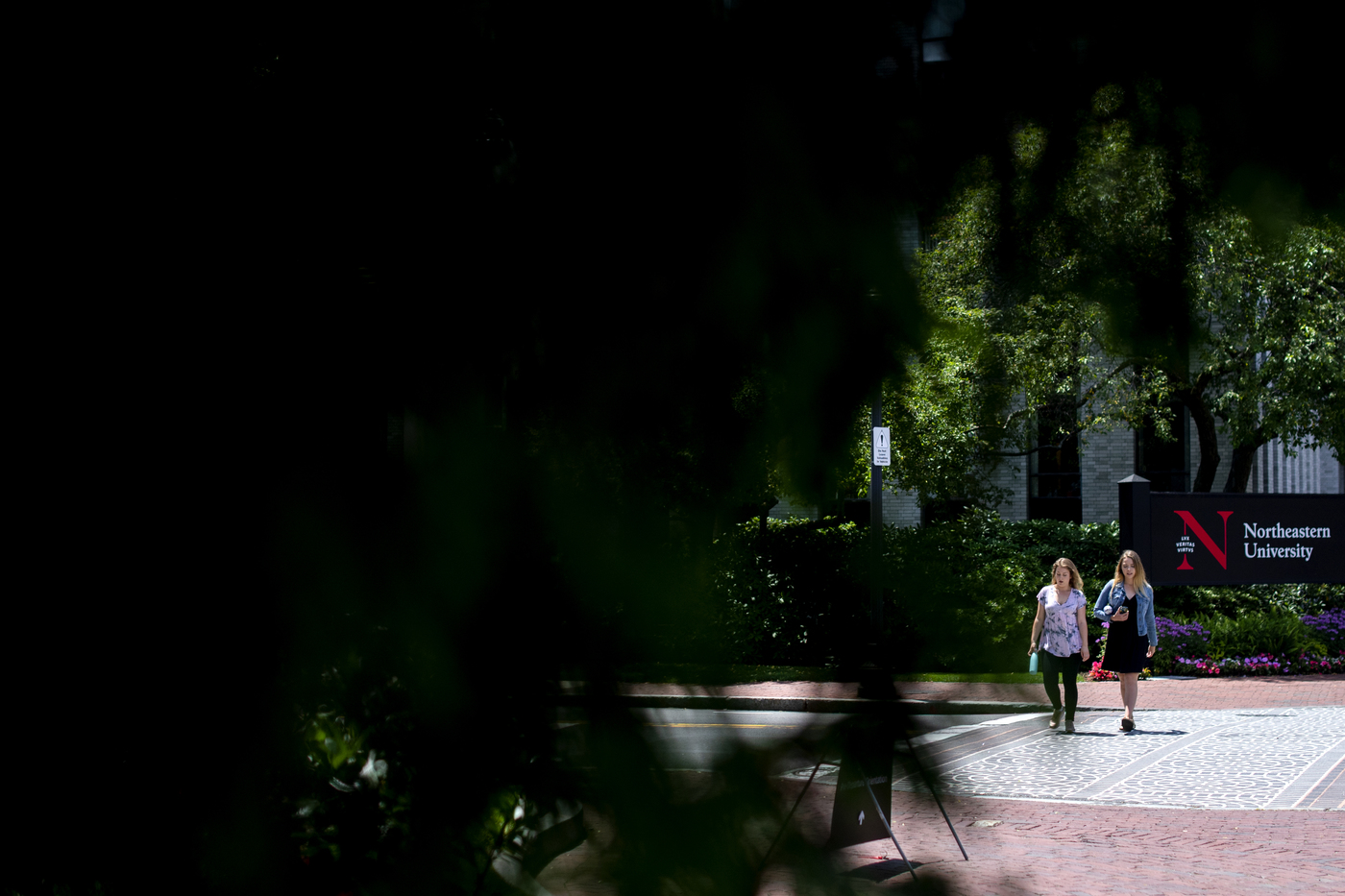
Details:
Date: July 10, 2023
Time: 08:00 AM to 09:00 AM
Event Category: Online
Meet the CPS: A Taster Lecture – An Analytics Case Study
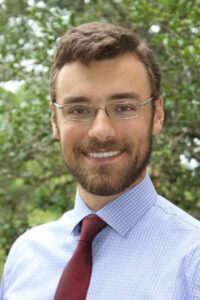
The importance and applications of analytics
Northeastern University in Arlington is pleased to host a taster lecture with the College of Professional Studies focusing on our Master of Professional Studies in Analytics.
In this class, we will talk about the importance and applications of analytics and the different building blocks for it. We will look at application areas and use cases. We will also discuss what the job market looks like for analytics in general and what opportunities exist.
Joseph Reilly is an assistant teaching professor in the Master of Professional Studies (MPS) in Analytics program at Northeastern University’s College of Professional Studies. Reilly acts as the innovation lead for the analytics program and provides program, faculty, student, and CPS support, as well as curricular oversight and best practices, including onboarding of new faculty. In addition to teaching a variety of analytics courses in his role as principal instructor, Reilly leads all general analytics-related operational program management, marketing, enrollment, and student-related issues, as well as advising activities. He leads academic integrity coordination across the domain, as well the development of noncredit offers, such as workshops.
Prior to joining Northeastern’s faculty, he worked as a senior product analyst and data scientist at Wayfair, where he designed semantic text extraction platforms to understand how suppliers, customers, and competitors described more than 10 million unique products. This drove a reduction in time required for suppliers to add products as well as iterative catalog cleanup efforts to remove erroneous values. He also implemented alerting and monitoring strategies for data science products to ensure product health in production, and automated human-in-the-loop processes to ensure timely, accurate review of model output.
During his doctoral work at the Harvard Graduate School of Education, Reilly wrote and implemented novel technology-based science curricula that could formatively assess student performance and provide dynamic feedback for students as well as teachers. He also spearheaded the experimental design, implementation, and analysis of a multimodal learning analytics laboratory study that collected eye tracking, electrodermal activity, and posture observations on participants in a collaborative setting. Before pursuing his doctorate, he taught middle school science and high school chemistry for six years in Virginia and Washington, D.C.
We will also have time for a Q&A, so bring any questions you have for professor Reilly.
CPS Launches Master’s Degree in Applied Logistics
In an era of disruption, new credential will position graduates for success in diverse markets
With business leaders increasingly focused on overcoming the challenges of global disruption, a new degree in logistics promises to prepare graduates for success in multiple fields. Integrating multiple knowledge areas with advanced technology, the Master of Professional Studies in Applied Logistics will train students to respond nimbly to challenging circumstances, leveraging the increasingly important role of logistics and supply chain professionals in daily operations and strategic projects across industries.
“In today’s fast-paced and disrupted market, employers demand graduates ready to hit the ground running, graduates who have mastered the practical side of the complex and sophisticated field of supply chain management,” said Ammar Aamer, Ph.D., associate teaching professor in the Project Management Programs. “In response, the new applied logistics degree focuses on the day-to-day understanding and execution details of logistics and distribution operations within supply chain management. The curriculum is infused with data analytics, emerging technologies, project management, and leadership skills to prepare students to be creative and adaptive in an ever-changing world.”
According to the U.S. Bureau of Labor Statistics, the job market for logisticians—whose median pay in 2021 was $77,030—is projected to grow 30 percent from 2020 to 2030.
Students in the program will learn to handle unexpected challenges and develop leadership and project management skills to help communicate with customers, avoid reactionary responses, work collaboratively to find innovative solutions, and effectively collaborate across supply chains. Using project-based learning and short-term experiential projects, students will train to plan for the worst and lead confidently, responding to disruption without becoming overwhelmed.
The new degree is designed to prepare learners for professional roles that might include transportation, warehouse, and distribution manager; supply chain manager; distribution-center or warehouse operations supervisor; logistics or supply chain analyst; logistics specialist/analyst/manager; purchasing manager; inventory specialist; operations manager or project manager.
Like many CPS programs, the MPS in Applied Logistics was developed in consultation with corporate leaders. Drawing on the expertise of supply chain professionals from companies including Carhartt, Gulfstream, Gap, Inc., and Transportation Insight, faculty consulted a range of employers to better understand their hiring needs, deepening industry connections as they researched industry standards and practices. Then, they built essential professional skills into the curriculum.
Based on this research, the program integrates technical expertise with systems thinking. Students will learn to use descriptive analytics in real time, responding to variables such as changing customer profiles, sales trends, and unusual conditions in supplier networks as they learn to manage inventory, change packaging based on customer demand, and optimize routing among distribution centers as markets shift.
Graduates will thus benefit from a program focused on the applied science of distribution—one that employs a three-part approach to develop awareness and proficiency in existing and new technologies that impact distribution; builds skills and proficiency to holistically analyze and manage the dynamic interactions of the end-to-end supply chain components; and provides students with the tools they will need to confront disruption and confidently manage people and projects in highly fluid and dynamic environments.
Easing Supply Chain Disruptions With Informed Decision Making
Recent global shocks such as the COVID-19 pandemic and the war in Ukraine have exposed the fragility of the global supply chain. Northeastern University-Toronto sat down with Ammar Aamer, associate teaching professor in the Master of Science in Project Management program at the College of Professional Studies, to talk about the role that digitalization can play in increasing the resiliency of the supply chain—and the exciting research that he and his students are conducting in this critical area.
Four Students Were Named 2022 RISE Award Winners
Students, faculty, staff across Northeastern University, and industry leaders participated in the university’s annual RISE (Research, Innovation, Scholarship, Entrepreneurship) exhibition on April 14, 2022, a showcase for multidisciplinary student research and creative projects. Student competitors had the opportunity to virtually present their research to industry professionals and potential employers or investors.
This year, four College of Professional Studies graduate students were named RISE Award winners across three categories:
Category: Business and Entrepreneurship
Mary McNamara, Doctor of Education student ’22: Mentoring Others Elevates All: The Benefits of Diverse Mentor-Entrepreneur Dyads
- Mentor: Lindsay Portnoy, Associate Teaching Professor, Doctor of Education program
Corey Ortiz, MS Corporate and Organizational Communication student ’23: Feeling the Crunch: Expectations of Crunch Time in the Video Game Industry
- Mentor: Gladys McKie, Lecturer, MS Corporate and Organizational Communication program
Category: Interdisciplinary Topics, Centers, and Institutes
Asha Kiran Makwana, MPS Analytics student ‘22: KAPI (Keyboardless ASL-inspired Programming Interface)
- Mentor: Beverly Quon
Category: Social Sciences, Humanities, and Law
L’Bertrice Solomon, Doctor of Law and Policy student ‘22: Let Me Live: Corporate Environmental Exceptions, Failed Environmental Protections in Louisiana
- Mentor: J.D. LaRock, Professor of the Practice, Doctor of Law and Policy program
Congratulations to our awardees!
Instilling a Passion for Data Analytics in Boston High School Students
In June 2021, Alice Mello, Ph.D., was granted an award to develop and run a novel program, ‘Data Analytics Workshop: Empowering Minority High School Students with In-Demand Career Skills’ – from the Northeastern Office of Diversity, Equity and Inclusion. She also has leveraged support from the College of Professional Studies to support this high-impact initiative.
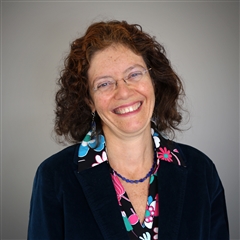
Mello’s interest was to ignite a passion for data analytics among the participating students through this preparatory course led by four graduate student mentors selected from the Master of Professional Studies in Analytics program, where Mello serves as an assistant teaching professor.
Called “Storytelling with Data,” the program was launched in three local schools: Edward M Kennedy Academy for Health Careers, where an in-person calculus class of 12 students studied data sets on Boston hospitals and COVID; Madison Park Technical Vocational High School, where two computer science classes attended virtual classes to study data sets on the chosen topics of games, movies, and Halloween; and Boston Day and Evening Academy, an alternative school for high school students, which attracted 13 math students for in-person learning. Students at the Academy first asked to study the war in Ukraine, but since data sets for this were hard to come by, they opted for public transportation instead.
Mentors began classes by explaining how data can be used to tell stories, by providing the context for any number of situations to show what is happening behind the scenes – and then how facts can create a visualization of patterns using the data visualization tool, Tableau. The climax of the story comes when the data reveals conflicts – which the data can also help resolve, using dashboards within Tableau.
The main goal of the program is to empower students to enter the field of data analytics, with a view to addressing the lack of diversity in the analytics field by inspiring students to continue their education at Bunker Hill Community College, the largest and most diverse community college in Massachusetts. This past year, CPS formed an agreement with BHCC that allows an easy transfer pathway for interested students, while offering Lowell Institute School scholarship support, depending on their financial needs.
“I am delighted at the success of this experience so far, both for the high school students and our MPSA graduate students (Teach to Learn and Learn to Teach!),” says Mello. “I’m committed to finding grant opportunities to offer this program on a yearly basis and I’m hopeful that we’ll see some of these students in our Bachelor of Science in Analytics or Bachelor of Science in Information Technology programs in a few years’ time!”
New Graduate Degree in Insurance Analytics and Management
As demand heats up for data-savvy professionals in the insurance industry, recent college graduates, career changers, and insurance professionals seeking to harness the power of data and digital transformation have a new educational option: the Master of Professional Studies in Insurance Analytics and Management program at the College of Professional Studies.
The new graduate degree, enrolling students for the fall 2022 term, was designed in collaboration with insurance industry leaders, who identified areas of knowledge and skills they seek in their recruiting—and that they anticipate needing as their companies evolve to meet contemporary challenges.
“The changing risk landscape requires a workforce experienced with the adoption of advanced technologies and with the social and emotional skills to bridge the gap between AI and machine learning and the human client,” says Uwe Hohgrawe, faculty director of the Analytics and Enterprise Intelligence domain. “These challenges and market needs provide the contextual approach for this flexible master’s degree program in insurance analytics and management that is experiential in nature and focused on skills and competencies that are in high demand by the insurance industry and talent acquisition.”
Among the trends addressed in the curriculum is the increasing need for strong analytics, knowledge of machine learning, and skills in artificial intelligence (AI). With such industry changes in mind, students in the program will focus on the competencies most critical to a modern enterprise, including data management and analysis, data visualization, problem-solving, advanced analytical tools, and emotional and psychological intelligence. To meet the needs of learners and the insurance industry, the new degree program will also include coursework in leadership and project management.
To prepare learners to join a growing industry, core courses will emphasize analytics. Students will have the option to choose between two standard concentrations—Decision Support and Customer Engagement—or to explore a specialized or custom concentration. Experiential learning, a core value across disciplines at Northeastern, will occur throughout the program, with ample opportunities for applied learning. To provide real-world experience, the program offers operational immersion in hands-on data manipulation and analysis as students learn to extract insights applicable to the insurance sector.
In an industry where technology is becoming increasingly important, the program will also emphasize the interpersonal skills required for success. In courses such as “Developing Your Leadership Capacity,” and “Managing the Customer Experience,” students will learn to translate technical information into human terms for clients, colleagues, and other stakeholders.
Designed to inspire and prepare professionals for success—and to provide a pathway to upward mobility—the Master of Professional Studies in Insurance Analytics and Management will aim to produce graduates who are thinkers, designers, and developers, providing the knowledge and tools to merge applications, humanics, data and technology in the age of digital transformation.
Meet Our New and Promoted Faculty
This year, the College of Professional Studies welcomed eight new faculty colleagues and celebrated five faculty colleagues who earned a promotion, whose accomplishments are listed below.
The faculty of the College of Professional Studies create exceptional learning experiences that are essential to our students’ success. Along with that demonstrated excellence, the faculty also share a commitment to exploring new ways of responding to the changing needs of our students. Our faculty members’ ingenuity, expertise, and creativity in program and curriculum development prove that education can persist and even flourish during difficult times.
New Faculty
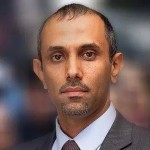
Dr. Ammar Aamer
Ammar Aamer, PhD, is an associate teaching professor in the Project Management program.
Dr. Aamer has more than 22 years of industry experience in project management, operations management, supply chain management and strategic business. He has served as a consultant on systems and processes including lean manufacturing, warehousing, six sigma, process and quality improvement and simulation modeling for numerous companies including Volvo, TRW Automotive, and Gap Inc. This included organizing and managing executive management training, developing capacity and asset-utilization models, and managing several continuous improvement projects.
Dr. Aamer has also served in various roles in education, including as assistant professor, associate professor, professor, and dean of the faculty of engineering and technology at Sana’a and Sampoerna Universities in Yemen and Indonesia. His publications include recent articles in the International Journal of Production Research, International Journal of Productivity and Performance Management, and Benchmarking: An International Journal. His research is currently focused on the areas of data analytics and supply chain management, artificial intelligence and project management, lean six sigma, change management, and the Internet of Things (IoT). Prior to his academic and business management roles, Dr. Aamer worked as a senior industrial engineer at Gap Inc.
Dr. Aamer earned his PhD in Industrial Engineering from the University of Tennessee in 2005. He has also achieved the Project Management Professional designation from the Project Management Institute. He lives in the greater Toronto area and teaches at Northeastern’s Toronto campus and online.
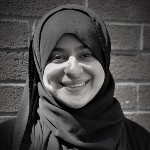
Dr. Noor Ali
Noor Ali, EdD, is an assistant teaching professor in the Graduate School of Education.
Dr. Ali has been a K-12 teacher for 15 years. She is the principal of Al-Hamra Academy, where her work has included mentoring faculty and students in bringing STEAM (science, technology, engineering, art and mathematics) -based experiential learning to the school. In this role she has also led initiatives focused on civic engagement among marginalized populations focused on social justice.
Dr. Ali’s writing on social justice, marginalization, leadership and curriculum has been published in academic journals including Follow The Leader and popular media outlets such as the Teach Better blog. Her book, Critical Storytelling: Narratives of Muslim American Youth, is forthcoming this fall from Brill/Sense. Her research interests include Critical Race Theory (CRT), and she has coined a CRT subset, MusCrit. She has extensive experience with citizen science, youth civic engagement, social justice and equity and interfaith initiatives.
Dr. Ali is a member of the Diversity, Equity, and Inclusion Taskforce for the Town of Shrewsbury, Massachusetts, and has served as a board member on the Shrewsbury Youth and Family Services, an organization that supports mental health. She has also worked extensively with the New England Association of Schools and Colleges (NEASC) and serves on the Accreditation Commission of Independent Schools.
Dr. Ali earned her EdD from Northeastern in 2018. She lives in the greater Boston area and teaches at Northeastern’s Boston campus and online.
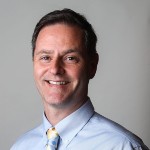
Jim Giumarra
Jim Giumarra is an associate academic specialist and faculty lead for the Mechatronics Engineering program.
Professor Giumarra previously served as department chair for electronics engineering technology and chair of the mathematics and physics department at Benjamin Franklin Institute of Technology, where he led the continuous improvement plan to ensure the relevance, sustainability and growth of the programs in the electronics department, developed a hybrid automation/robotics course curriculum fusing online instruction and an in-person lab model, and served as the sole faculty member on the school’s President’s Advisory Council. In addition, he was selected for the National Science Foundation (NSF) Research Experience for Teachers program to learn about Robotics and Controls at Texas A&M University and for the NSF-sponsored 20-hour “Revamping Robotics Education” workshop at Michigan Technological University, where he earned a certification as an instructor on the Fanuc industrial robot.
Prior to entering the education field, Professor Giumarra spent almost a decade in science research and engineering, most recently at Janis Research Company, where he designed custom cryogenic vacuum systems based on experimental requirements; expanded system design to include options for automation, vibration isolation, optical testing, in-situ magnetic field testing, and an in-situ device-feature measurement system; and developed and constructed control circuits for low-temperature test systems.
Professor Giumarra earned his master of science in electrical engineering and computer science from the University of Illinois in 2000. He lives in the greater Boston area and teaches in Boston and online.
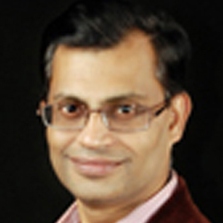
Dr. Umesh R. Hodeghatta
Umesh R. Hodeghatta, PhD, is an assistant teaching professor in the Analytics program.
An engineer, a scientist and an educator, Dr. Hodeghatta specializes in analytics, machine learning, deep learning, natural language processing, and cyber security. Dr. Hodeghatta has more than 25 years of experience in technical and senior management positions at AT&T Bell Laboratories, Cisco Systems, McAfee, and Wipro. As a data scientist, he helps business leaders arrive at data-driven decisions linked to their organizations’ strategies and financial goals. He has served in numerous professional organizations and regulatory bodies—including as senior technical advisor to the Government of India.
Dr. Hodeghatta previously served on the faculty of Kent State University in Ohio and the Xavier Institute of Management in Bhubaneswar, India, where he designed and taught courses. He was instrumental in setting up a high-speed optical network and data center with the integration of telephony and data in XUB. He has published in international journals and conference proceedings on topics ranging from “How to Build Chat-Bots Using Machine Learning and NLP” to “Can AI and Privacy Co-Exist?” Also, he is the author of two books: Business Analytics Using R: A Practical Approach and The InfoSec Handbook: An Introduction to Information Security published by Springer Apress. He also is a senior member of the Institute of Electrical and Electronics Engineers (IEEE).
Dr. Hodeghatta earned his master’s degree in electrical and computer engineering from Oklahoma State University and his PhD from the Indian Institute of Technology Kharagpur in 2015. He lives in the greater Boston area and teaches in Portland and Boston and online.

Dr. Megan Kennedy
Megan Kennedy, PhD, JD, is an assistant teaching professor in the Doctor of Law and Policy Program.
Dr. Kennedy served for six years as assistant district attorney in Norfolk County, Massachusetts, working in both district and superior courts. As a criminal prosecutor, she focused primarily on cases of family violence and sexual assault, earning both the Spotlight Award and the District Court Prosecutor of the Year award.
Dr. Kennedy joined Northeastern in 2018 as a lecturer in the Doctor of Law and Policy program, teaching courses on law and legal reasoning, research methods, qualitative methods and law and policy concepts. Her research interests include courts and the decision-making of court actors; victims of crime; policy and legal reform; and research methods. She has published articles on the processing of court cases, the harsh sentencing of juveniles, and the dynamics of misdemeanor plea bargaining. In her current role, she is responsible for the research methods curriculum, student thesis advising, and teaching. Her prior teaching roles include positions at Southern New Hampshire University and the State University of New York at Albany (UAlbany).
Dr. Kennedy earned her law degree from Gonzaga University School of Law in 2002 and her PhD from the School of Criminal Justice of UAlbany in 2018. A member of the American Society of Criminology and the Law and Society Association, she is also licensed to practice law in Massachusetts. She lives in Seattle and teaches in Seattle and Boston and online.
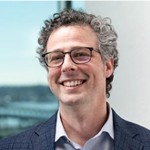
Dan Koloski
Dan Koloski is professor of the practice in the Analytics program and director of professional studies at the Roux Institute at Northeastern University in Portland, Maine.
Professor Koloski joined Northeastern after spending more than 20 years in the IT and software industry, working in both technical and business management roles in companies large and small. This included application development, product management and partnerships, and helping lead a spin-out and sale from a venture-backed company to Oracle. Most recently, Professor Koloski was vice president of product management and business development at Oracle, where he was responsible for worldwide direct and channel go-to-market activities, partner integrations, product management, marketing/branding and mergers and acquisitions for more than $2 billion in product and cloud-services business. Before Oracle, he was CTO and director of strategy of the web business unit at Empirix, a role that included product management, marketing, alliances, mergers and acquisitions and analyst relations. He also worked as a freelance consultant and Allaire-certified instructor, developing and deploying database-driven web applications.
Professor Koloski’s previous work experience focused on the application of advanced analytical techniques to software testing, IT operations and cyber security. His teaching is focused on building the next generation of data citizens across the technical and business spectrum through delivery of technical and experiential education courses to graduate students. Professor Koloski directs the professional programs faculty team at the Roux Institute and delivers a variety of lifelong learning experiences for Northeastern industry partners.
Professor Koloski holds a bachelor’s degree from Yale University and earned his MBA from Harvard Business School in 2002. He lives in the greater Portland, Maine, area and teaches at the Roux Institute Portland campus and online.
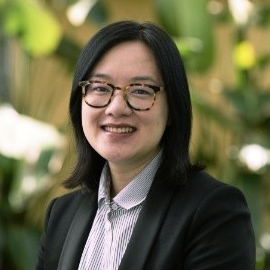
Dr. Yvonne Leung
Yvonne Leung, PhD, is an assistant teaching professor in the Analytics program.
Dr. Leung previously served as an assistant professor in the Department of Psychiatry at the University of Toronto. She is also a scientist at the University Health Network, the largest research institute in Canada, where she designs and evaluates artificial intelligence (AI)-based psychosocial and supportive care services for cancer patients to improve quality of life and access to care.
Dr. Leung has more than 15 years of experience in psychosocial and mental health research and has secured over C$880,000 in personal awards and research funding as a principal investigator and over half a million dollars as a co-investigator. She has published 39 peer-reviewed journal articles in psychosocial care and health services research.
Currently, Dr. Leung is leading two projects using machine learning-based natural language processing algorithms to assist online support group therapists in tracking real-time participant progress and to develop Chatbot solutions for automated self-care support tailored to patients with metastatic breast cancer. Her expertise encompasses administrative databases, patient-reported outcomes, psychometrics, advanced statistical techniques including machine learning, trajectory analysis, latent structure analysis, and cluster analysis. She is also knowledgeable in qualitative analytic methods such as grounded theory and thematic and content analysis, as well as in interpretive descriptive methods. Among the courses she has taught are “Introduction to Statistics,” “Research Methods,” “Survey Methods,” and “Exploratory and Confirmatory Factor Analysis” to both healthcare professionals and senior analysts.
Dr. Leung earned her PhD in kinesiology and health science from York University in Toronto in 2011. She lives in the greater Toronto area and teaches at the Toronto campus and online.
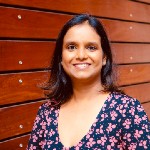
Dr. Shanu Sushmita
Shanu Sushmita, PhD, is an assistant professor in the Analytics program.
Shanu Sushmita, who specializes in machine learning, data mining, information retrieval and health analytics, has worked for more than a decade as a researcher and teacher of computer science at the undergraduate and graduate levels. Most recently, she was an affiliate assistant professor at the University of Washington, Tacoma, School of Engineering and Technology, concurrently holding a faculty position in the Master’s in Business Analytics program at Milgard Business School at UW, Tacoma.
Previously, Dr. Sushmita was head of data science at KenSci, a Seattle healthcare company that provides AI platform for digital health and healthcare solutions. Her role included strategic planning, designing a vision for data science and managing a team of data and research scientists to demonstrate how healthcare payers and providers could use data and analytics to improve and standardize clinical care, reduce costs, achieve population health goals and make better strategic decisions for their organizations.
Dr. Sushmita’s research interests include applications of machine learning, information retrieval and utilizing data to improve user experience. In the course of her doctoral studies at the University of Glasgow, she taught courses in data science, analytics and natural language processing, and she has published on topics in healthcare, social media, artificial intelligence (AI) and information retrieval.
Dr. Sushmita holds a B.E in Computer Science from North Maharashtra University and a Ph.D. from the University of Glasgow in Computer Science. She lives in the greater Seattle area and teaches in Seattle and online.
Promoted Faculty
Congratulations to five faculty members of the College of Professional Studies who have been promoted. The following faculty members have been recognized for their excellence in teaching and curriculum development. Promotion also recognizes their contributions to the college and university through their leadership, service, educational innovation, discovery and professional engagement in their fields.
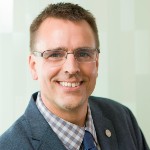
Dr. Christopher Bolick
Christopher Bolick, EdD, has been promoted to associate teaching professor in the project management program.
Dr. Bolick, who has served at Northeastern since 2013 as a part-time faculty member, as a full-time faculty member and currently as faculty leader, brings extensive experience with a Fortune 40 company in project management and business process improvement.
In his role as lead faculty for the project management programs, Dr. Bolick has worked to establish faculty onboarding as well as faculty mentoring and support, as the program has grown in size and quality across six regional campuses. He was one of the first faculty members to pilot livecast teaching from the Charlotte campus to Boston, and Project Management under his leadership was the first program to be fully mapped as competency-based, allowing further development at the modular level and opening the door to badging and stackability for students through prior learning assessments. He has also served as chair of the CPS Academic Programs Committee, which oversees and shepherds all new program and program changes across all academic areas in CPS.
Dr. Bolick has taught graduate courses including “Project Foundations,” “Project Cost & Scheduling,” “Project Evaluation,” “Special Topics,” and “Project Capstone” in addition to partnering with organizations in the nuclear, pharma and municipalities fields to assess workforce needs and deliver certificates, multi-day workshops and credit-bearing courses. He presented at the Project Management Institute’s 2018 Technology and Talent Symposium and has co-authored a chapter in the areas of artificial intelligence, data analytics, and digital transformation as related to project management practices.
Dr. Bolick earned his EdD from Northeastern University in 2020.
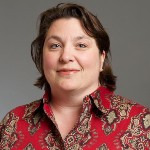
Dr. Kelly J. Conn
Kelly J. Conn, PhD, has been promoted to teaching professor in the Graduate School of Education.
Dr. Conn has been a full-time faculty member since 2012. Informed by her previous career in laboratory science, she has developed and taught courses on science, technology, engineering and math (STEM) education including “Current and Emerging Practices in STEM Education” and “National and International Benchmarks in STEM Education.”
Dr. Conn is currently collaborating on a project to develop and expand experiential learning in elementary and secondary school classrooms by creating curriculum for the Network for Experiential Teaching and Learning (NExT). In this role, Dr. Conn has developed and taught courses for the Graduate Certificate in Experiential Teaching and Learning and serves as faculty lead for the Master’s of Education program in Learning and Instruction. She also teaches in the Doctor of Education program and serves as dissertation chair to several students.
Dr. Conn coauthored a book commissioned by the College of Professional Studies, The Lowell Institute School at Northeastern University (2015), and was lead science consultant to the Abakhokeli Project, a joint science-teacher-training effort of Northeastern and South Africa’s Western Cape Education Department. She has also served as the regional lead faculty member for the EdD program in Hong Kong.
Dr. Conn currently serves as co-investigator of a multi-year National Science Foundation grant that explores experiential, industry-connected learning experiences for high school students to foster interest and preparation for STEM careers.
She earned her PhD in biochemistry from Boston University in 1999 and has done postdoctoral work in neuroscience.
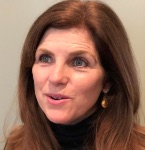
Dr. Shaunna Harrington
Shaunna Harrington, PhD, has been promoted to teaching professor in the Graduate School of Education.
Dr. Harrington teaches in the master’s programs in the Graduate School of Education, and also teaches and advises undergraduates in the PlusOne program, which allows students to begin working toward their Master of Arts in Teaching degree while completing their bachelor’s degree. She has taught courses on curriculum, instruction, and assessment, and on the history of K12 and higher education, and was the long-time faculty lead for the master’s programs foundation course, “Culture, Equity, Power and Influence.” Dr. Harrington has served on a variety of internal committees including the College of Professional Studies Joint Task Force on Faculty Workload and the Faculty Performance Review and Merit Pay Task Force. She currently serves as the board president for the Massachusetts affiliate of the Association for Supervision and Curriculum Development.
Dr. Harrington began her career as a middle school social studies teacher in the Boston Public Schools and has continued to focus her teaching and activism on equity and justice education. She has been engaged in action research focused on teaching social justice in online settings and on deepening equity practices in teacher education. She also researches the history of education and has presented on a variety of topics from community schools created by Black parents and activists in Boston in the 1960s to American colonial education in the Philippines in the early 20th century. She served as a Humanities Scholar on the public history project, The Long Road to Justice, which documents how African Americans have sought racial justice in the Massachusetts courts.
Dr. Harrington earned her PhD in history at Northeastern in 2019.
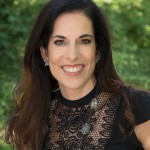
Dr. Kristen Lee
Kristen Lee, EdD, has been promoted to teaching professor in the behavioral science programs.
Since her full-time appointment in 2013, Dr. Lee has taught courses including “Engaging Diversity and Difference,” “Stress and Its Management,” “Assessing your Leadership Capability,” “Group Dynamics and Interpersonal Conflict,” and has advanced Northeastern’s mission in a wide variety of ways. A pioneer in developing the college’s Experiential Network (XN) model and an innovator with the PlusOne stackable credential model, she is lead faculty member in behavioral science within the college’s Healthcare and Biotech domain, serves as faculty-in-residence in International Village, and earned the 2012 Excellence in Teaching Award. Her leadership on mental health and resilience has significantly shaped the university’s approaches to supporting students.
Dr. Lee also serves as a Global Resilience Institute Faculty Affiliate. Active on campus and in the media as an advocate for global mental health, Dr. Lee is a frequent conference presenter and author. Her 2014 book, Reset: Make the Most of Your Stress: Your 24-7 Guide for Well-Being, won Motivational Book of the Year in the Next Generation Indie Book Awards. She is also the author of Mentalligence: A New Psychology of Thinking: Learn What it Takes to Be More Agile, Mindful and Connected in Today’s World, and the upcoming Worth the Risk: How to Microdose Bravery to Grow Resilience, Connect More, and Offer Yourself to the World, and the Rethink Your Way to the Good Life column for Psychology Today. Her TEDx talk, “The Risk You Must Take” has been viewed more than 311,000 times.
A Licensed Independent Clinical Social Worker, Dr. Lee speaks and consults globally on resilience, has shared her expertise as a grant reviewer for U.S. federal agencies for more than two decades, and has spoken at more than 40 events across the university.
Dr. Lee earned her EdD in Organizational Leadership Studies at Northeastern in 2011.
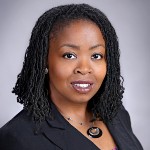
Dr. Corliss Thompson
Corliss Thompson, PhD, has been promoted to teaching professor in the Graduate School of Education.
Since her full-time appointment in 2013, Dr. Thompson has taught research methods, research design, and social justice courses, including “Culture, Equity, Power, and Influence,” “Research Design,” and “Qualitative Research Methods.” Her work centers on her commitment to diversity, equity, and inclusion, and she has contributed significantly to the development of NExT, the Network for Experiential Teaching and Learning, serving as a panelist and creating materials and workshops.
Dr. Thompson is passionate about using culturally relevant and experiential approaches in her teaching and mentoring. She uses research methodology and program evaluation approaches for deeper understanding and improvement of teaching and learning and helps colleagues and students employ the same approach. Dr. Thompson is currently principal investigator on a 2019 National Science Foundation grant focused on experiential learning in science, technology, engineering and mathematics (STEM) for high school students. She has also served on a number of committees in the College of Professional Studies and the university, such as the Provost Search Committee, and she presents on topics of diversity, equity and inclusion across the university and beyond.
Before becoming a faculty member, Dr. Thompson worked in a research and evaluation office in a school district in North Carolina and at the University of North Carolina, where she earned her doctoral degree. She also was an elementary school teacher in Charlotte and Chapel Hill, NC.
Dr. Thompson earned her PhD in Educational Research from the University of North Carolina at Chapel Hill in 2013.
Dawn of the Global Consensus Toolkit
Diplomacy meets equity as an interdisciplinary partnership yields a powerful new platform aimed at leveling the policy-making playing field.
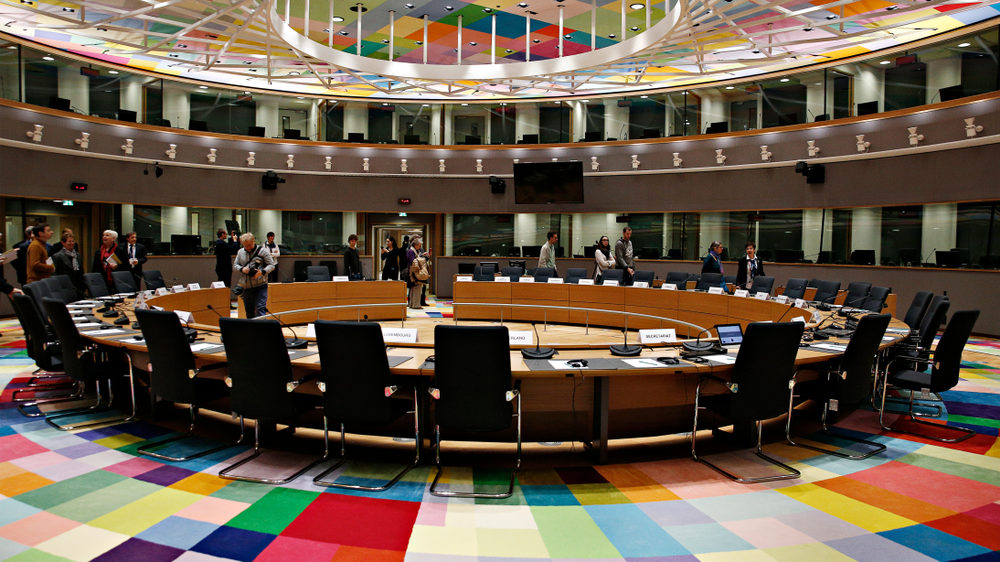
On its face, the request from the U.S. Department of State seemed simple: Design a digital dashboard to allow officials to quickly research how often United Nations (UN) member nations had sided with the U.S. on various topics. Wondering how often the votes of the U.S. and members of the G-77 have coincided on issues related to human rights? Nuclear arms and disarmament? Decolonization? Plug in the variables and find out.
In practice, it was anything but.
“From a policy perspective,” Associate Teaching Professor Fiona Creed says, “people often think there are a lot of possibilities, and there are. But then you add the data piece into it, and you realize—this may not be as straightforward as we think.”
It was the spring of 2020, and Creed had secured a project via the State Department’s Diplomacy Lab program, a public-private initiative wherein the federal agency partners with colleges and universities, outsourcing research and other tasks related to foreign policy challenges by offering student teams, led by faculty experts, the opportunity to wrestle with real-world problems.
For this particular project, the charge was to find a way to measure and visually render the degree to which members of the Group of 77 developing nations (a bloc that now numbers 134 and includes Cuba, Iran and Afghanistan) had voted in alignment with the U.S. Creed found the problem fascinating, and she knew her students in the College of Professional Studies’ Global Studies and International Relations graduate program would embrace the challenge.
She also knew they couldn’t do it alone.
The task was perfect for Creed’s students because it required researching, developing, and applying a sophisticated understanding of international relations to categorize UN resolutions and group them by topics and subtopics. But it also entailed logging the votes on each resolution, building digital dashboards, and figuring out the best ways to graphically render the decades of information contained in the UN voting history. Massive amounts of data were involved. The numbers would have to be crunched, the code written, and a design that would let users easily turn the figures into images such as bar graphs would have to be conceived and executed. All of it would take some serious expertise in programming and data analytics.
A long-awaited collaboration
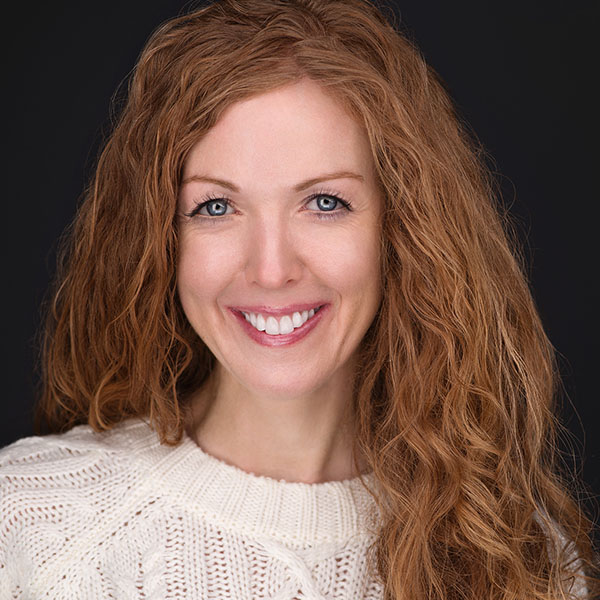

Luckily, Creed knew just whom to call—in fact, that person was sitting right across the hall.
“Alice is very good at explaining to me how the data works and what’s actually possible,” Creed says of her colleague and office neighbor Alice (pronounced ah-LEE-say) Mello, an assistant teaching professor in the Master of Professional Studies in Analytics program. The picture that emerges as the two describe working together is a kind of collaborative counterpoint, with Creed the visionary international affairs expert and Mello the technical miracle worker—and grounding voice of reason.
“I come in with big ideas,” Creed says. “‘This is amazing! We can definitely do this! Absolutely! Consider it done!’ And then Alice is right there saying ‘No, actually, that’s not going to work, because the data just won’t support it—but here’s what will work.’”
That synergy, rooted in shared experience and complementary expertise, has been years in the making.
Creed, whose career has encompassed research, diplomacy, entrepreneurship and the nonprofit sector, was born in Ireland and started her professional life as a policy analyst at the EU Delegation to the United Nations in New York City. She later served as executive director of the United Nations Association of Greater Boston, where she oversaw operations including Model UN, the Association’s flagship experiential learning program focused on diplomacy and global issues. For her PhD in European Studies at University College, Cork, Creed studied EU coordination at the UN.
Mello, born in Brazil, began her professional career as a programmer while still a student at the Federal University of Bahia in Salvador, Brazil. She went on to work as a software engineer for Coelba, the big utility that distributes power in Bahia state. She later developed database management applications for the Massachusetts Water Resource Authority, worked as a programmer at MIT and co-developed a technology-in-education consultancy. Her PhD from Tufts University is in Education, Technology, and Drama.
When the expatriates met at Northeastern, Mello says, they quickly found common ground, and before the Diplomacy Lab opportunity arose, they had long imagined working on a project together.
“I had a project with the UN in 2018,” Mello says, “and I approached Fiona about how we might make it sustainable, but we didn’t really end up pursuing it. Another time she asked me to present to students who needed data analytics on their projects. So we’ve had a few times that we’ve tried to work together, but nothing really went up. This time, it did.”
With students in their capstone classes and other courses onboard, the two educators launched the project. Soon, as global studies students sifted through thousands of UN resolutions, applying their knowledge of international affairs to categorize each, data analytics students began building the user dashboard and writing the code to generate a powerful, intuitive interface that would allow end-users to easily parse the information to suit their needs. As the students worked, their collaboration began to mirror that of their professors.
“One of the most interesting pieces for us was hearing the students interact,” Creed says. “The identification of the countries was becoming so fluent for the data analytics group that they were starting to notice things about the politics and to ask questions that the global studies students could answer. It was brilliant to see that come together.”
“For the analytics students it was super-interesting,” Mello adds, “because it’s basically getting qualitative data and transforming it into something quantitative. If it’s all quantitative, you punch in the numbers—and I’m not saying it’s easy—but you can do it. But to get qualitative data and then to transform that into quantitative, to look at patterns and have some basis for it statistically, that is where all the magic and the synergy came in.”
Inherent uncertainty
As students labored to build something new, part of the challenge became grappling with ambiguity. When you’re inventing something, it can be hard to know what success—or a good grade—will eventually look like. But learning to tolerate the uncertainty inherent in such a process, Creed and Mello say, actually helped students explore new modes of thinking.
“Working logically, analytically, but also understanding the process isn’t having all the answers, it’s figuring them out—I had never had that kind of thinking until I did my PhD,” Mello says. “But in this project, we tried to bring that to these students, because that’s the thinking that they need to do well to be good data scientists and good data analysts. It really resonated for me, to see them learning that way.”
Creed and Mello also note that, in some ways, the composition of the classes doing the work reflected the subject of the work itself.
“I had students from India, Ethiopia, a student based in Kuwait, and one in Qatar, who is in the U.S. military,” Creed says, “and then Alice’s group had students from China, India, and the U.S. When you’re looking at policy making and analyzing all of what was in front of us, it was really interesting to get the perspectives of students who were from the countries that they were working on and seeing patterns, or not seeing patterns, and then we could tease out afterwards with them, ‘What do you think of that?’ or ‘Why is that?’”
One of the most interesting developments, the researchers say, was the shift from a U.S. focus to a more global perspective. Engendered in conversation with their UN contacts, in the perspectives of students from diverse countries of origin, and through their own lenses as immigrants, that shift came to reflect the deepest mission of the portal that would eventually be known as the Global Consensus Toolkit.
“A primary motivation for having a public access portal,” Creed and Mello write in the introduction to the visual analytics platform they and their students developed, “is to level the policy-making playing field.”
“There was a lot of data,” Creed says. “We worked with it, Alice and I, plus multiple teams of students. There are many departments of foreign affairs or governments, globally, that just do not have the time or money to dedicate to getting into the UN digital library, downloading everything, coding it, reworking it—and so that’s where coming back to that original Diplomacy Lab ask, that we saw the relevance of this material being publicly available. And the usefulness of it.”
Big audience, broad applications
That usefulness, Creed and Mello say, reaches far beyond international affairs. Although the Toolkit was designed with diplomats in mind as the end-users, the information it contains—and the lenses it provides for sorting and analyzing that information—might easily be applied in the work of researchers, think tanks, nonprofits, advocacy groups and policy decision-makers or anyone else seeking to accurately chart the tides of power and the relationships among nations over the past 20 years.
From their “client,” the Global Consensus Toolkit earned rave reviews. When students presented at the State Department via Zoom, the reception was unequivocal. A senior UN official in attendance, Creed reports, was astonished.
“He said, ‘That is amazing. We have tried to work with this data before and we have never seen anything like that,’” Creed says. On the spot, he proposed a continued collaboration, one that would involve digging even deeper—and would not require a new application through the Diplomacy Lab program. With that project in mind, Mello and Creed plan to align their capstone classes this winter and next spring. For now, they are delighted to invite the world to use the free, online tool they and their students developed.
“Fiona told me in the beginning that nobody had done this work before,” Mello says. “There have been some static models of voting patterns, but we were able to create an interactive dashboard that is really functional—and that, nobody has done.”
Graduation 2021
College honors master’s and doctoral graduates, citing ‘ingenuity and resilience’, with ceremonies that emphasize service, perseverance and experiential learning.
Doctoral Hooding
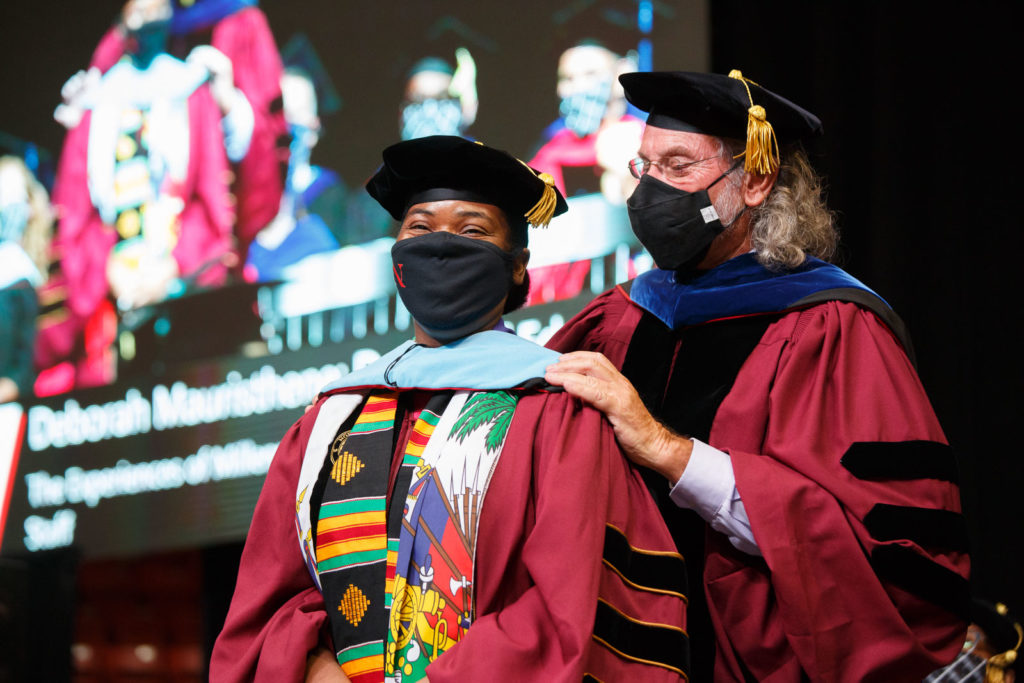
The words of Brent Musson, (Doctor of Law and Policy ’20), captured the mood at the Doctoral Hooding and Graduation Ceremony of the College of Professional Studies in Matthews Arena Sept. 9—and at the Master’s Graduation Ceremony in the same location the following day: “Humanity at its best,” the 2020 Dean’s Medal recipient said in his remarks to the successful doctoral candidates, “is humanity in gratitude.”
Gratitude was in abundance both days as faculty, administrators, students and their families—as well as friends of the College worldwide via livestream—celebrated the graduates’ achievements in the face of extraordinary challenges. Speakers at the ceremonies praised the degree recipients for their perseverance in scholarship despite a global pandemic, their passionate commitment to learning and their determination to address real-world problems in their project-based learning and research.
‘Both humility and pride’
In his opening remarks on Sept. 9, Provost and Senior Vice President for Academic Affairs David Madigan, Ph.D., welcomed the College of Professional Studies (CPS) community, expressed his faith in the graduates’ future success and his pride in their accomplishments and celebrated their membership in Northeastern’s “powerful knowledge network” dedicated to the dream of a more just and equitable society. He was followed at the podium by Interim Dean of CPS Dr. David Fields, who noted the unusual degree to which CPS students break down the barriers between work and learning.
“Our doctoral students are already fulltime professionals and leaders in their fields,” Dr. Fields observed. “In true Northeastern fashion, they are researching what they live, and living what they research, every day.”
Dr. Fields went on to explain the significance of the hooding ceremony—so-called because doctoral students traditionally have the hoods of their academic regalia lifted over their heads by faculty.
“The symbolism of the hooding ceremony at our doctoral commencement honors both the doctoral candidate’s work and the network of relationships that make that work possible,” Fields said. “[It] embodies both humility and pride, on both sides of the relationship, as faculty members welcome a new peer into their community.”
Faculty speaker Dr. Mounira Morris (B.S. ’91, M.S. ’95), assistant teaching professor and the co-lead for the Master of Education in Higher Education Administration program, offered her congratulations to the graduates and acknowledged the special challenges that had arisen during their studies, including the pandemic and the persistence of racial injustice. She quoted James Baldwin, noting his achievements as a playwright, novelist and civil rights activist: “Not everything that is faced can be changed, but nothing can be changed until it is faced.”
“To me,” Dr. Morris said, “this means that at times we will collectively endure hardship; however, we can use these experiences, especially as doctors, to offer wisdom, hope, and a better path forward.”
A longtime leader in diversity, equity and inclusion (DEI)—and currently working with colleagues at Northeastern to develop a new academic credential in DEI—Dr. Morris emphasized the power for good inherent in the attainment of an advanced degree, encouraging the graduates to find creative solutions to the challenges in their professions, communities and personal lives.
“We, as faculty,” she said, “ask that you take your research, and go out and change your world, your profession, your workplace and make it just a little bit better than before. We, as faculty, believe you can persevere and persist. We know you can.”
Intellectual explorers
Dr. Musson, whose acceptance of the 2020 Dean’s Medal had been previously postponed due to Covid-19 precautions, suggested in his remarks that the attitude of an academic researcher is “not that of an author or maker, but rather that of an explorer.” He praised the selflessness and commitment of his peers and made a critical distinction between an undergraduate education—which, he said, “teaches a student how to learn”—and a graduate education, in which students learn “to use tools … to solve other people’s problems” and to create value, going “from inward-facing to outward-facing.”
He noted that, soon after a doctoral candidate’s academic journey begins, “we become acutely aware of what we’re signing up for; to spend the next few years engaged in the most rigorous intellectual exercise of our lives, to extract a single, pure, tiny drop of insight to ever-so-slightly raise the sea level of the ocean of human knowledge.”
And he described a moment of inspiration in what he termed a spiritual awakening: a street soccer game he had observed in West Africa more than a decade earlier, where, when a beautiful goal was scored, both teams celebrated. Drawing a parallel between the players’ selfless joy and the academic community he had found at Northeastern, Dr. Musson said, “These happy boys had purpose; and that purpose made them work together, against all odds to orchestrate a moment of greatness—a moment of pure, unselfish greatness.
“I’ve never circled a soccer field making wings with my arms,” he continued, “but research has made me part of our team, and this humbling honor is our winning goal.”
As Dr. Musson finished his speech, the audience rose to deliver a sustained standing ovation.
At the conclusion of the ceremony, Dr. Madigan returned to the stage to offer closing remarks, praising the successful doctoral candidates for their “drive, dedication and sense of purpose.”
“The world is ever changing,” he said, “but you are prepared to meet—and conquer—its challenges.”
Master’s Ceremony
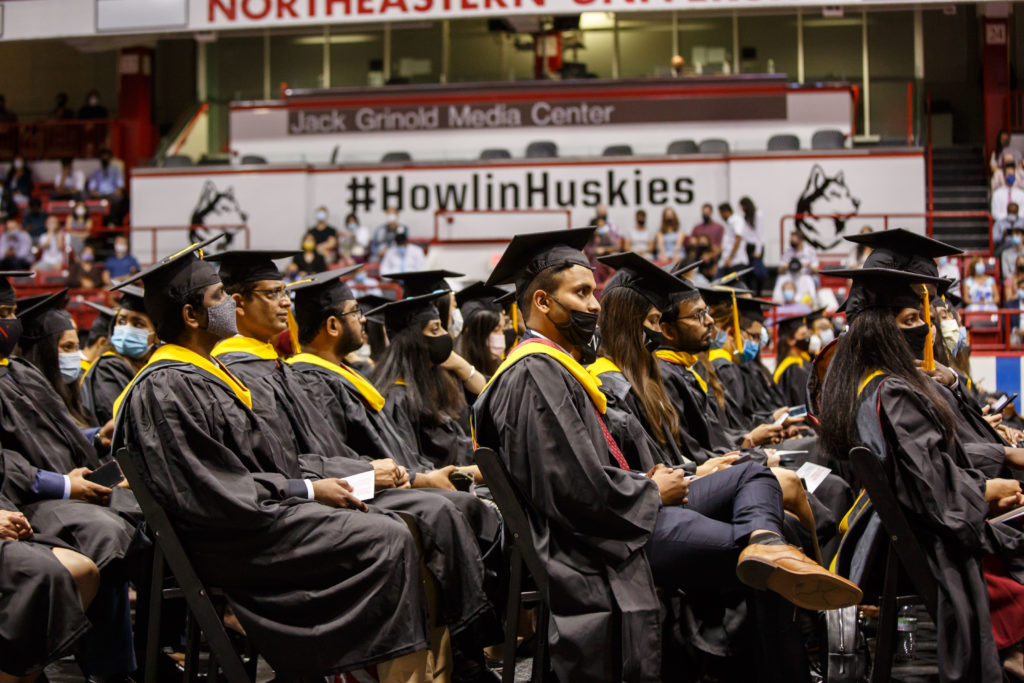
‘A day full of promise’
The following afternoon, Dr. Madigan returned to welcome master’s graduates to the arena on “a day full of promise.” He praised their “clear-eyed determination, discipline and hard work,” and offered special recognition to the faculty who, he said, by guiding the graduates to success, “have strengthened a legacy of knowledge and helped shape the future in scores of fields of professional endeavor.”
Following Dr. Madigan’s remarks, Dr. Fields spoke, celebrating the graduates’ global engagement and their cultivation of “the cultural competencies needed for a lifetime of contribution in a fast-paced, diverse, global society.” He went on to emphasize the benefits of their embrace of experiential learning, noting that in so doing, they had “addressed pressing, real-world problems” and become “well-prepared to lead from experience in the workplace.”
Dr. Fiona Creed, associate teaching professor and faculty director of the Global Studies and International Relations program, next introduced student speaker Ebony Small, ’21.
Reflecting on a year of adversity, Small observed “the pandemic itself could neither make nor break us” and asked graduates to consider the ways in which the challenges of the past 18 months had taught them to know their own courage, ambition, and steadfastness.
“We did not make it to this moment merely because we just-so-happened to survive a global pandemic,” Small said. “No, we made it here because we made the choice to value education and then fiercely pursued it. My dear friends and colleagues, despite the unexpected challenges of this year, we thrived. We grew. We changed.”
“This,” she concluded, “is what it looks like to turn a choice into a change. This is what it looks like to champion growth. Congratulations.”
From humble roots to world-renowned
Following an introduction by Dr. Earlene Avalon, associate professor and lead faculty for Health Administration and Health Sciences, graduation speaker Carl H. Whittaker, a philanthropist whose life path has spanned business, engineering and music, addressed the community.
A director of the Herb and Maxine Jacobs Foundation—which supports the College’s “A2M” or “Associates to Masters” program, offering an accelerated pathway from a community college associate’s degree to a bachelor’s at the College of Professional Studies and a master’s degree in Biotechnology at Northeastern’s College of Science—Whittaker began by invoking Northeastern’s origins as a vocational school offering evening classes, run by the YMCA.
“We all know that Northeastern is now a world-renowned university, highly ranked in many fields,” Whittaker said. “But inside this world-class institution is still the legacy of that 1898 night school.”
Whittaker linked this history with Northeastern’s emphasis on internship experiences, co-ops, and other programs that connect students to “great employers and great jobs.” He applauded the graduates for their effort and creativity in juggling jobs, families, and studies, urged them to embrace the role of mentor for other aspiring scholars, and invited them to fight income inequality—as his foundation does in part by supporting scholarships at Northeastern.
“I am inviting each of you to join my fight against economic inequality by encouraging at least one or two others to join you in earning an advanced degree,” Whittaker said. “Just be ready when you see a family member or neighbor who would value your guidance. Your friendly support might be thing that leads someone to a more prosperous and fulfilling life.”
The Doctoral Hooding and Master’s Ceremony were livestreamed from Matthews Arena. Click the links below to view recordings of the ceremonies.
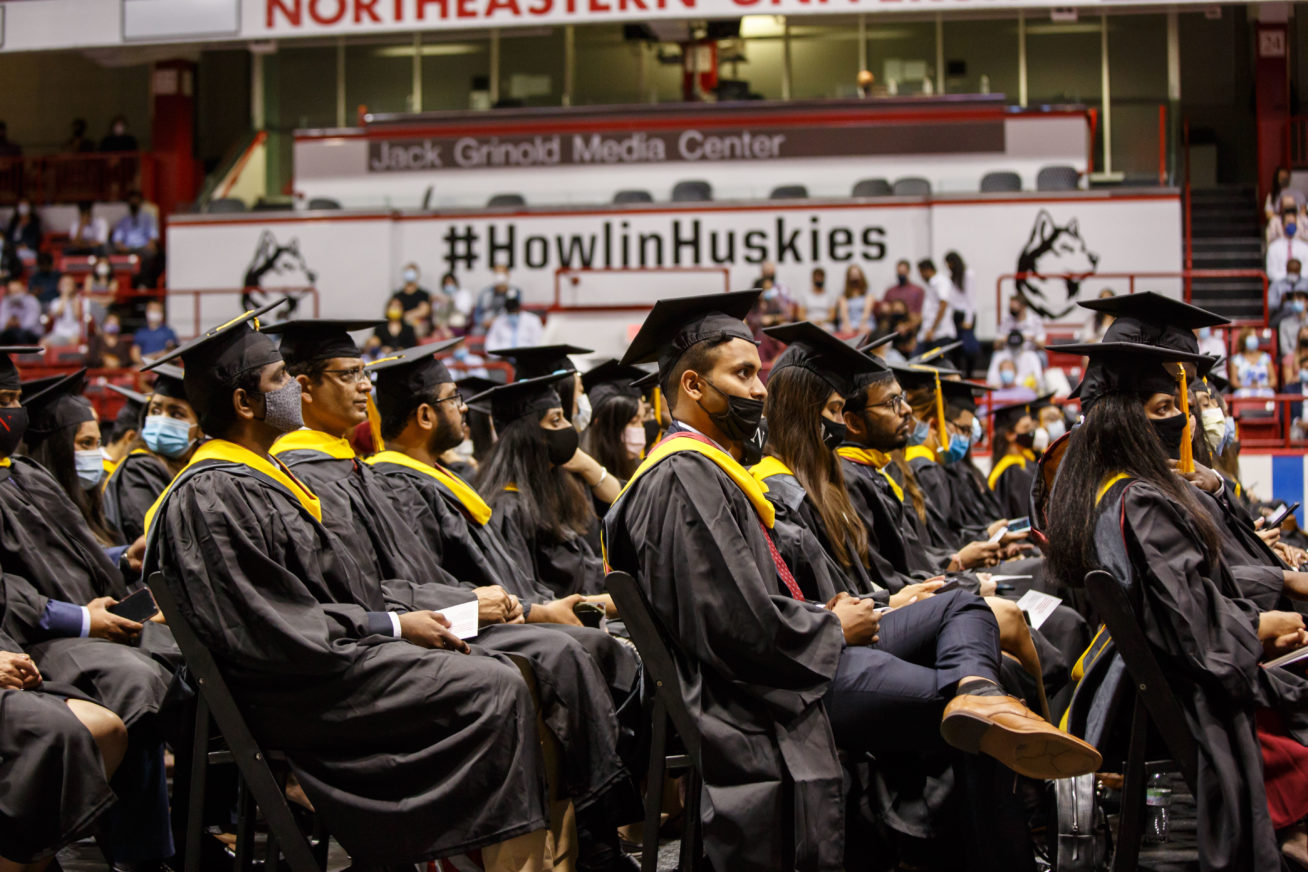
Watch the Ceremonies
The Doctoral Hooding and Master’s Ceremony were livestreamed from Matthews Arena. Click the links below to view the graduation pages and watch recordings of the ceremonies.